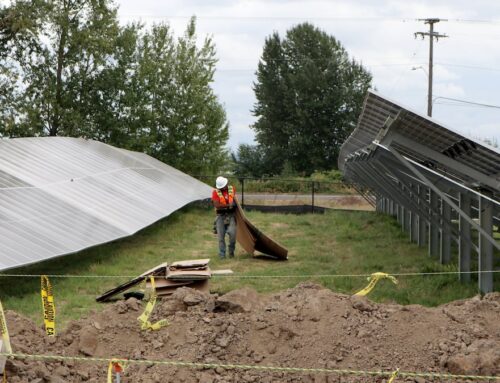A Sample Grant Proposal on “Empowering Women Entrepreneurs through Renewable Energy in Bhu
October 5, 2025
This grant proposal aims to secure funding for a transformative project that supports women entrepreneurs in Bhutan through renewable energy initiatives. By empowering women with the tools and resources they need to succeed, we can foster economic growth, promote gender equality, and contribute to sustainable development in the region. The project will not only provide women with access to renewable energy but also equip them with the skills necessary to harness this energy for their businesses.
This initiative aligns with global goals for gender equality and sustainable development, making it a vital investment in the future of Bhutan. The need for this project is urgent. Women in Bhutan face numerous challenges in starting and growing their businesses, including limited access to financial resources, training, and technology.
By focusing on renewable energy, we can address these barriers while also promoting environmental sustainability. This proposal outlines the background of Bhutan and its women entrepreneurs, the specifics of the renewable energy project, and the anticipated outcomes that will benefit both the participants and the broader community. Are You Working on Solar Innovation or Clean Energy Access? Join us to receive updates.
Background Information on Bhutan and Women Entrepreneurs
Bhutan is a small, landlocked country nestled in the Eastern Himalayas, known for its unique approach to development that prioritizes Gross National Happiness over economic growth alone. Despite its rich cultural heritage and stunning natural landscapes, Bhutan faces significant economic challenges. The majority of its population relies on agriculture, and many rural communities lack access to basic services, including electricity.
This lack of infrastructure disproportionately affects women, who often bear the brunt of household responsibilities and have limited opportunities for economic advancement. Women entrepreneurs in Bhutan are a vital part of the economy, yet they encounter numerous obstacles. Cultural norms often restrict women’s roles in business, and they frequently lack access to capital and training.
According to recent studies, women-owned businesses are underrepresented in key sectors, limiting their potential contributions to economic growth. By addressing these barriers through targeted support and renewable energy solutions, we can empower women to become leaders in their communities and drive sustainable development.
Overview of the Renewable Energy Project
The proposed renewable energy project aims to provide women entrepreneurs in Bhutan with access to clean energy solutions that can power their businesses. This initiative will focus on solar energy systems, which are particularly well-suited for rural areas where traditional electricity infrastructure is lacking. By installing solar panels and providing training on their use, we can help women reduce their energy costs and increase productivity.
In addition to providing energy solutions, the project will include workshops on business development and financial literacy. These workshops will equip women with essential skills to manage their businesses effectively and make informed decisions about investments in renewable energy technologies. By combining energy access with entrepreneurial training, we aim to create a holistic support system that empowers women to thrive in their ventures.
Objectives of the Grant Proposal
The primary objective of this grant proposal is to empower women entrepreneurs in Bhutan by providing them with access to renewable energy solutions and essential business training. Specifically, we aim to achieve the following objectives: 1. Install solar energy systems for at least 100 women-owned businesses in rural areas of Bhutan within the first year of the project.
2.
Conduct training workshops on business management, financial literacy, and renewable energy utilization for at least 200 women entrepreneurs over the course of the project.
3. Foster a supportive network among women entrepreneurs to encourage collaboration, knowledge sharing, and mentorship. By achieving these objectives, we will create a sustainable model that not only enhances individual businesses but also contributes to the overall economic development of the region.
Target Beneficiaries and Community Impact
The primary beneficiaries of this project will be women entrepreneurs in rural Bhutan who are seeking to start or grow their businesses. By focusing on this demographic, we aim to address gender disparities in entrepreneurship and provide women with the tools they need to succeed. The project will specifically target women who operate small-scale enterprises in sectors such as agriculture, handicrafts, and tourism.
The impact of this project will extend beyond individual beneficiaries. As women entrepreneurs gain access to renewable energy and business training, they will be better equipped to contribute to their local economies. Increased productivity and reduced energy costs will enable them to reinvest in their businesses, create jobs, and support their families.
Furthermore, by fostering a community of empowered women entrepreneurs, we can inspire future generations and promote gender equality throughout Bhutan.
Project Implementation Plan
The implementation plan for this project consists of several key phases designed to ensure its success. The first phase will involve community outreach and engagement to identify potential beneficiaries and assess their specific needs. This will include meetings with local leaders and organizations to build trust and gather insights into the challenges faced by women entrepreneurs.
Once beneficiaries are identified, we will proceed with the installation of solar energy systems. This phase will involve collaborating with local technicians and suppliers to ensure that installations are completed efficiently and sustainably. Following installation, we will conduct training workshops focused on business management and renewable energy utilization.
These workshops will be interactive and tailored to the specific needs of participants. Throughout the implementation process, we will maintain open lines of communication with beneficiaries to gather feedback and make necessary adjustments. Regular check-ins will help us monitor progress and ensure that participants are receiving the support they need.
Budget and Financial Plan
A detailed budget has been developed to outline the financial requirements for this project. The total estimated cost is $150,000, which includes expenses for solar energy system installations, training workshops, materials, personnel, and administrative costs. We anticipate securing funding through a combination of grants, donations from individuals and organizations, and potential partnerships with local businesses.
To ensure transparency and accountability, we will maintain meticulous records of all expenditures and provide regular financial reports to stakeholders. Additionally, we will explore opportunities for cost-sharing with beneficiaries where feasible, allowing them to invest in their own businesses while still receiving support from the project.
Monitoring and Evaluation Strategy
To measure the success of this project, we will implement a comprehensive monitoring and evaluation strategy. This strategy will include both qualitative and quantitative methods to assess progress toward our objectives. Key performance indicators (KPIs) will be established at the outset of the project, including metrics related to energy access, business growth, and participant satisfaction.
Regular surveys and interviews with beneficiaries will provide valuable insights into their experiences and challenges throughout the project. We will also conduct periodic evaluations to assess overall impact on the community and identify areas for improvement. This data will be used not only for reporting purposes but also to inform future initiatives aimed at supporting women entrepreneurs in Bhutan.
Partnerships and Collaborations
Collaboration is essential for the success of this project. We plan to partner with local NGOs, government agencies, and community organizations that share our commitment to empowering women entrepreneurs. These partnerships will enhance our reach and effectiveness by leveraging existing networks and resources.
Additionally, we aim to engage local businesses that can provide technical support for solar installations or offer mentorship opportunities for participants. By fostering a collaborative approach, we can create a supportive ecosystem that encourages innovation and growth among women entrepreneurs in Bhutan.
Sustainability and Long-Term Impact
Sustainability is a core principle of this project. By equipping women entrepreneurs with renewable energy solutions and business skills, we are laying the groundwork for long-term success. The use of solar energy not only reduces reliance on fossil fuels but also lowers operational costs for businesses, allowing them to thrive even after the project concludes.
Furthermore, as women gain confidence in their abilities as entrepreneurs, they are likely to inspire others in their communities to pursue similar paths. This ripple effect can lead to broader social change as more women enter the workforce and contribute to economic development.
Conclusion and Call to Action
In conclusion, this grant proposal presents an opportunity to make a meaningful impact on the lives of women entrepreneurs in Bhutan through renewable energy initiatives. By providing access to clean energy solutions and essential business training, we can empower women to overcome barriers and achieve their entrepreneurial dreams. We invite potential funders and partners to join us in this important endeavor.
Together, we can create a brighter future for women entrepreneurs in Bhutan while promoting sustainable development in the region. Your support can help us turn this vision into reality—let us work together to empower women and transform communities through renewable energy!
In the context of empowering women entrepreneurs through renewable energy in Bhutan, a related article that might be of interest is the call for applications for Watson University’s Fellowships for Social Entrepreneurs. This initiative, detailed in the article, focuses on supporting social entrepreneurs who are driving change in their communities, much like the women entrepreneurs in Bhutan who are leveraging renewable energy to foster economic growth and sustainability. The fellowship provides resources and mentorship to help these entrepreneurs scale their impact, aligning with the goals of the grant proposal. For more information, you can read the full article here.
Search
RECENT PRESS RELEASES
Related Post


